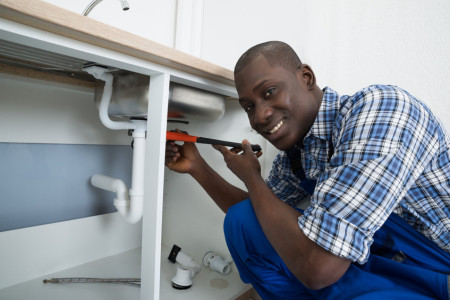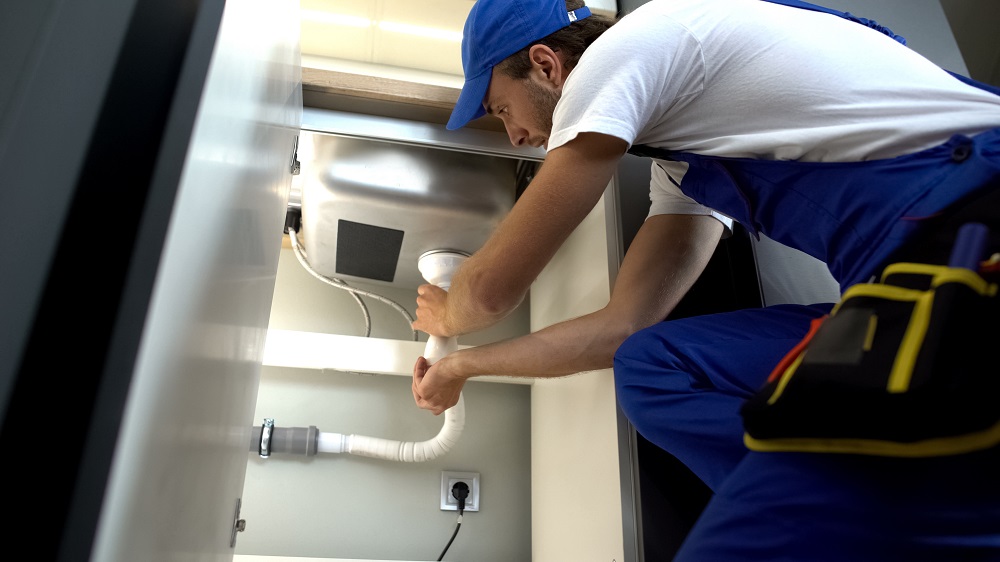Important Fixes for Emergencies: Steps to Take Until Support Arrives
Important Fixes for Emergencies: Steps to Take Until Support Arrives
Blog Article
Every person is bound to have their personal idea in relation to Plumbing Emergencies: Tips on What To Do Before.

Pipes emergency situations can strike any time, creating stress and prospective damages to your home. Whether it's a ruptured pipeline, a clogged up drainpipe, or a leaky faucet, understanding exactly how to handle the scenario till a professional plumber arrives can save you from additional issues. This write-up gives essential emergency plumbing suggestions to assist you alleviate damages and gain back control throughout a pipes dilemma.
Shut off the Water System
The primary step in any kind of pipes emergency situation is to shut down the water. For local concerns, such as a dripping tap or commode, switch off the shutoff near the component. When it comes to a significant leakage or burst pipe, find your home's primary water shut-off valve and turn it off instantly. Knowing the location of these shutoffs ahead of time can conserve important time during an emergency.
Address Small Leaks with Temporary Repairs
Little leaks can quickly become substantial troubles if left uncontrolled. Utilize these momentary repairs until professional aid gets here:
While these repairs aren't irreversible, they can assist minimize water loss and damages.
Unclog Drains Securely
A blocked drainpipe can be an aggravating and unpleasant problem. Below's exactly how to tackle it:
If these techniques do not work, stay clear of using extreme pressure, as it may aggravate the clog.
Manage Overflowing Toilets
An overruning toilet can trigger prompt chaos. Here's what you ought to do:
Shut down Your Hot Water Heater
In particular emergency situations, such as a ruptured pipeline, it's important to shut down your hot water heater. This protects against getting too hot or damages to the device when water quits streaming. Shut off the power supply to the water heater (electric or gas) and allow it cool to prevent potential hazards.
Momentarily Quit a Burst Pipe
A burst pipeline can result in significant water damages in minutes. To minimize the problem:
Call a professional plumber quickly to attend to the problem permanently.
Manage Frozen Pipeline Thoroughly
In chillier climates, frozen pipelines are an usual emergency situation. If you presume a frozen pipe:
Protect against Additional Damages
Taking fast activity to decrease damages can conserve you money and time in the long run. Here's how:
. Have an Emergency Situation Pipes Package
Prepare a standard pipes emergency kit to handle minor issues effectively. Your kit ought to include:
Having these tools on hand can make a significant difference in your ability to manage emergencies.
Know When to Call a Professional.
While quick fixes can aid momentarily, particular pipes problems need instant expert interest. Call a plumbing if:.
Without delay speaking to an expert makes sure the problem is solved properly and stops additional issues.
Final thought.
Plumbing emergencies can be overwhelming, but with the appropriate expertise and devices, you can handle the circumstance efficiently up until help arrives. By switching off the water, attending to little leakages, and making use of momentary repairs, you can reduce damage and maintain your home safe. Keep in mind, these suggestions are short-term solutions; constantly seek advice from a licensed plumber to take care of the origin of the trouble. Prep work and quick thinking are your best allies in any pipes emergency.
8 Helpful Tips for Managing Plumbing Emergencies at Home
If your plumbing system hasn’t failed once, wait for it because almost everyone has a story to tell. Sometimes, it could be simple emergencies such as a leaking pipe, a blocked cistern, or even a big burst pipe. In situations like this, you need to have some handy tips to save you some money and from possible damages.
Take care of minor issues early.
Sometimes, you could have avoided an emergency by taking proactive measures while it was still early. Some major plumbing emergencies can be a result of an ignored minor issue. We recommend that you have items like plumbing tapes and other related items. A plumbing tape can allow you to manage minor leaks before the plumber arrives.
Cut off the water supply.
This tip is essential in almost any type of leakage problem. For problems like minor leakages in the toilet or kitchen, turn off the supply that takes water to the affected pipes. If the leakage is a major pipe, you must shut off the supply valve to the entire building. This will help you avoid flooding your home and neighbors if you share a flat.
Know your plumbing system
Folks typically move into a new apartment without understanding the water supply around the building. This can prove disastrous if a water emergency arises and the plumber is far away. The previous tip will prove useless if you don’t practice this one. More importantly, know where your water shut-off valve is located – you’ll need that knowledge to prevent potential home floods.
Have some common handy tools
There are lots of plumbing emergencies that you can handle without hiring a plumber. That’s why you must keep some tools available always. Some tools that you can use to fix simple plumbing emergencies easily include plumbing tapes, screwdrivers, thread seal tapes, plungers, pliers, tape measures, and rubber gloves.
Insulate your pipes from cold
You’ll save yourself from many plumbing expenses if you protect your water pipes from the cold. This is because of the harmful effects that cold weather can have on your pipes. During winter, your pipes can burst from being overly expected to freezing temperatures. So, make sure insulators are there to keep the pipes working correctly.
Avoid practices that will clog your toilet.
Many people indulge in practices that can damage the plumbing system of the entire building. One of these is when they use their toilet to dispose-off garbage. They flush all kinds of things, such as paper towels, bandages, hairs, female sanitary products, etc., down the toilet. This will block your toilet in the long run, incurring unnecessary expenditures. Dump such waste in the trash instead.
Check your dials regularly.
Sometimes, there could be leakages in your home without noticing them in time. So, constantly monitor your water meter dial. If the dial is reading when there is nobody using water, this is an indicator that there is leaking. Check for leaks immediately. Call a plumber as soon as possible if you can’t find any.
https://www.constructionplacements.com/8-helpful-tips-for-managing-plumbing-emergencies-at-home/

As a fervent reader on , I figured sharing that piece of content was smart. Liked our write-up? Please share it. Help someone else locate it. Thanks a lot for being here. Return soon.
Website Report this page